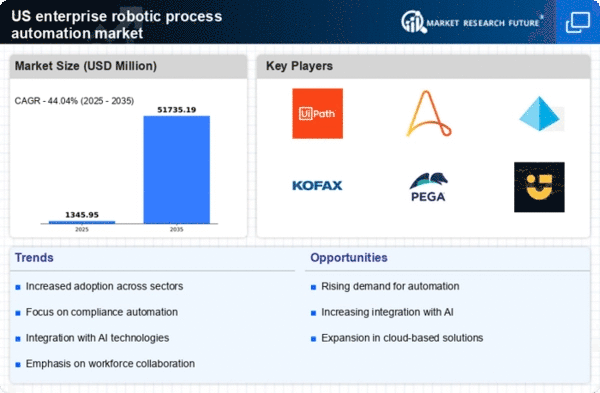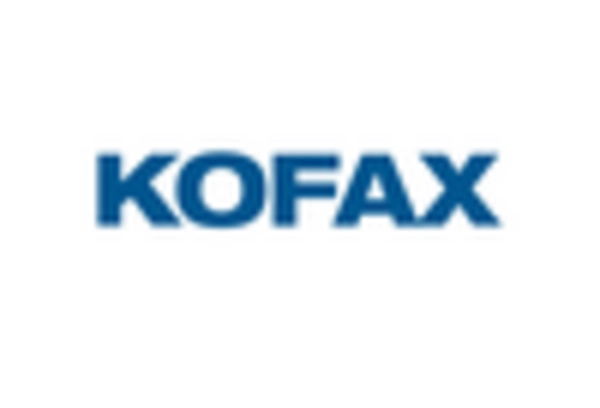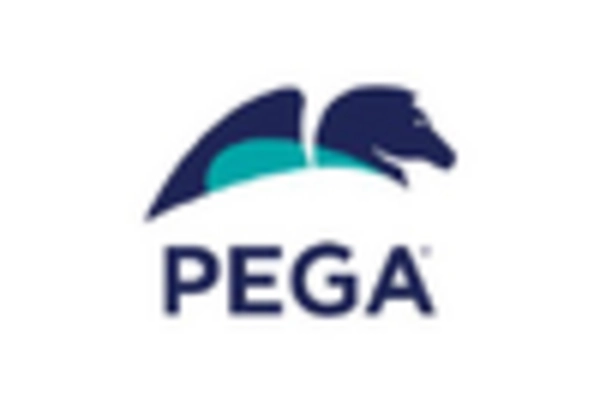Integration of Advanced Analytics
The integration of advanced analytics into the enterprise robotic-process-automation market is emerging as a key driver. Organizations are recognizing the value of combining RPA with data analytics to gain insights into operational performance. This synergy allows businesses to identify bottlenecks, optimize workflows, and make data-driven decisions. Reports suggest that companies employing analytics alongside RPA can achieve a 25% improvement in process efficiency. As the need for actionable insights grows, the enterprise robotic-process-automation market is likely to see increased adoption of solutions that incorporate advanced analytics capabilities.
Focus on Cost Reduction Strategies
Cost reduction remains a primary focus for organizations, significantly influencing the enterprise robotic-process-automation market. Businesses are increasingly adopting RPA to minimize labor costs and reduce errors associated with manual processes. Data indicates that RPA can lead to a reduction in operational costs by as much as 40%. This financial incentive is compelling organizations to invest in automation technologies, as they seek to enhance their bottom line. As the pressure to cut costs intensifies, the enterprise robotic-process-automation market is expected to grow as more companies turn to automation as a viable solution.
Need for Enhanced Customer Experience
In the enterprise robotic-process-automation market, the emphasis on enhancing customer experience is becoming increasingly critical. Organizations are leveraging RPA to automate customer service processes, thereby reducing response times and improving service quality. Studies indicate that companies utilizing RPA in customer interactions can see a 20% increase in customer satisfaction scores. This focus on customer-centric automation is driving investments in RPA solutions, as businesses recognize the potential for improved engagement and loyalty. As customer expectations evolve, the enterprise robotic-process-automation market is poised to expand in response to these demands.
Rising Demand for Operational Efficiency
The enterprise robotic-process-automation market is experiencing a notable surge in demand for operational efficiency. Organizations are increasingly seeking to streamline their processes, reduce operational costs, and enhance productivity. According to recent data, companies that implement robotic process automation (RPA) can achieve efficiency gains of up to 30%. This drive towards efficiency is particularly pronounced in sectors such as finance and healthcare, where the need for accuracy and speed is paramount. As businesses strive to remain competitive, the adoption of RPA technologies is likely to continue growing, thereby propelling the enterprise robotic-process-automation market forward.
Regulatory Compliance and Risk Management
The enterprise robotic-process-automation market is also being driven by the need for regulatory compliance and effective risk management. Organizations are facing increasing scrutiny from regulatory bodies, necessitating the automation of compliance-related processes. RPA can help ensure adherence to regulations by automating data collection and reporting, thereby reducing the risk of human error. It is estimated that companies utilizing RPA for compliance can reduce audit preparation time by up to 50%. As regulatory requirements continue to evolve, the enterprise robotic-process-automation market is likely to expand to meet these compliance challenges.
















